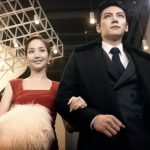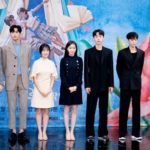
By Jae-Ha Kim
Kocowa.com
March 26, 2019
One of the things I have noticed about K-Dramas is that they tackle topics not often talked about in everyday conversation. By doing so, they bring some important subject matters to the forefront.
For instance, adoption. Some K-Dramas use the topic as merely a device to add drama to their plot, while others delve into the aftermath of what happens when children lose their parents. In a society such as Korea where lineage is such an important part of one’s social hierarchy, adoption can be a touchy subject. Things are more transparent now, but there are still too many adoptees who grow up in a cloak of secrecy, without ever knowing about their own history.
This is one of those gateway dramas that sucked many fans into the world of K-Dramas. And though the series is addictive and seemingly breezy in subject matter, it tackles many serious topics, such as gender roles, equality and, yes, adoption. Gong Yoo plays the handsome young heir to the family business. Unwilling to get married, he fabricates a gay relationship with someone he assumes is a young man, but is really a young woman with short hair. SPOILER ALERT: He grew up thinking that he was the product of his father’s affair with another woman. That was considered more respectable than the truth, which is that he was adopted. No one told him this until he was 29. I’ll be honest — I was incensed that no one thought to tell him this at an earlier age. That knowledge was his to know…and not something to be revealed like a dirty secret when he was already a full grown man.
So Ji-Sub plays Moo-hyuk, a young Australian man who has been abandoned twice. His single mother in Korea sent him to a child welfare center when he was a baby. At 2, he was adopted by an Australian couple, who abused him until he ran away. Living on the streets as a petty thief who steals from tourists, he isn’t above trying to traffic girls who think he’s helping them. Through a series of coincidences, he travels to South Korea, where he seeks to find his birth mother and get justice for his sad life. This isn’t the best-written series, but So is dynamic in his portrayal of a young man whose life seems futile. SPOILER ALERT: Moo-hyuk’s mother never knew she had a son. She was told her baby died at birth. Later, she adopts a child of her own, and her love for him is genuine. When she learns that Moo-hyuk is dying and that his organs could save her son, she isn’t exactly subtle in trying to get him to agree. One of the saddest elements of this series was when Moo-hyuk asks her to make him a simple meal. Not knowing that he is her son, she treats him as a bothersome interloper. At the end, he sacrifices his own life so that his mother’s adopted son will survive. His death means she will be happy that the child she adores will survive.
The lead actors in this series alone are worth watching this K-Drama, which tackles mental illness in a respectful manner. Ji Sung stars as Cha Do-hyun, the illegitimate child of a chaebol, who suffers from dissociative identity disorder. His doctor believes he created the other personalities to deal with childhood trauma. Hwang Jung-eum portrays Dr. Oh Ri-jin, a fledgling psychiatry resident whose past is tied to Do-hyun’s. Ri-jin is the adoptive sister of Oh Ri-on (played by Park Seo-joon). Unlike many K-Dramas where the characters are unaware of their adoptions, Ri-jin remembers that she was about 7 when she joined her loving family. But neither she, nor Do-hyun, can remember much of their lives before that age. I’m not going to include anything — even as a spoiler — because I really really don’t want to ruin the plot for anyone. But I will say that it showed how familial love is sometimes created, rather than born into. Trivia: Ji Sung and Hwang Jung-eum had previously starred opposite each other in 2013’s “Secret Love.” Hwang and Park Seo-joon would go straight from this drama into “She Was Pretty.”






My husband says the same thing. Once the korean entertainment industry starts to normalize adoption by just making it a matter of fact thing in movies etc, hopefully koreans will start to view it differently and hopefully rates of domestic adoption will increase.
An older korean movie, Please teach me English, also touches on adoption. Main character is learning English in a hagwon because his older bio sister who was internationally adopted to an English speaking country, is coming to Korea to visit them. I liked that the language barrier that often exists for KADS is talked about and acknowledged and that the family makes an attempt to learn English. Also, her adoption is not hid in the movie